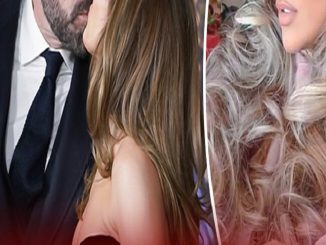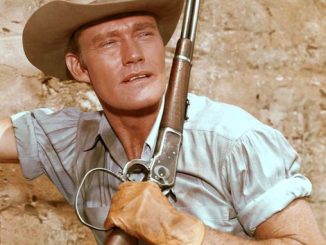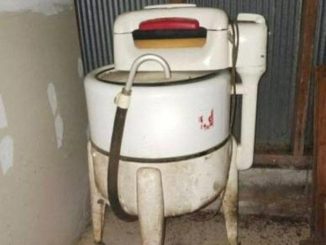
A lot of big, tragic and important things have happened to this wonderful country of ours since April 2014. None of which I have covered. I was too busy writing about hungover parenting, ancient philosophy and my dog Colin.
Out of the 536 columns I have written, 27 were about that guy. Far too few. He is such a good boy, he deserves an article a week.
Today is the end of an era for me, and whenever these final events pop up in our lives, we can’t help but think about the ultimate end.
Everything we do, we will one day do for the last time. That’s why you have to enjoy things while they are around. It’s not just big events like leaving a job, house or loved one either. Whatever moment you happen to be in now, you will never get it back, and you don’t know how many more you have.
Everything we do in life, from eating pizza to spending time with the people we love, to driving, writing, drinking or breathing, we will one day experience for the final time. It might happen tomorrow. This can be either a depressing or an inspiring thought, depending on how you look at it.
A few years back in this column, I interviewed professor of philosophy William B Irvine, of Wright State University, Ohio, on this very topic. He put it this way on a Zoom call: “Recognition of the impermanence of everything in life can invest the things we do with a significance and intensity that would otherwise be absent. The only way we can be truly alive is if we make it our business periodically to entertain thoughts of the end.”
Today’s column is very meaningful to me because it is my last. Like the last night with a lover before she goes overseas. And just like a lover, there have been some half-arsed efforts put in from me over the years. Last week, for example, I spent 750 words moaning about how bad my cricket team is. But the truth is that any of my columns could have been the final. If I had reminded myself every week for the past 10 years that the end is inevitable, I may have been more grateful for having a column and appreciated writing them all as much as I am this one.
While everything we do could have more meaning with a focus on finitude, some things are inherently more worthwhile than others. There is no doubt my column “The pros and cons of wearing Speedos” from November 2022 was less meaningful than most things in this world. That was a waste of everyone’s time. So, if we only have so much time, how do we pick the best things to do?
Well, Oliver Burkeman, the author of Four Thousand Weeks – Time Management For Mortals, suggested this to me in a 2022 column: “Ask yourself, does this choice enlarge me? You usually know on some unspoken level if it does. That’s a good way to distinguish between options.”
With that in mind, I don’t feel great about my 2018 article on “New Zealand’s best hole”. That didn’t enlarge anyone.
There will be people reading this column right now who have loved my writing in the Herald and are sad to see it end. Others will have hated it and are glad to see me go. Many won’t have any opinion at all. But for those in the first camp, I have good news. I have a book coming out on May 28 called A Life Less Punishing – 13 Ways To Love The Life You Got (Allen and Unwin Book Publishers). It’s a deep dive into the history, philosophy and science of not wasting our time lost in anger, loneliness, humiliation, stress, fear, boredom and all the other ways we find to not enjoy perfectly good lives. It’s available for pre-order right now (google it if you’re interested).
A Life Less Punishing took me two years to write and is equivalent in words to 100 of these columns. Which would be a complete nightmare for those in the hate camp, but as I say, great news for those who want more.
Anyway, thanks to the Herald for having me, thanks to the lovely people who make an effort to say nice things to me about my column nearly every day and thanks to the universe for every single second we get.
Bless!
Neighbors Made Me Put up a Fence to Hide an ‘Ugly’ Car in My Yard – A Week Later, They Begged Me to Remove It

I didn’t quite see my neighbors’ vintage ’67 Chevy Impala the same way, but to me it was more than just a rusty heap. What was supposed to be a fight over a “eyesore” developed into something none of us saw coming. It altered our peaceful suburban street in ways we never would have imagined.
My dad left me an ancient, beat-up 1967 Chevy Impala. I saw it as a project I wanted to restore and a reminder of my father, even though most people just saw it as a rusted automobile. My garage was piled high with tools and spare components, so the automobile sat in my yard. I’d been trying to save money and find time to work on it, but I knew it looked awful.
But my neighbors were far more concerned about this than I was. I was out inspecting the Impala one bright afternoon when I suddenly remembered something. Gus, my dad, was demonstrating how to change the oil. He smiled, his thick mustache twitching. “You see, Nate? It isn’t complicated science. Simply perseverance and hard work,” he had stated. A piercing voice jolted me back to reality as I was lost in thinking as I ran my fingers over the worn paint. A man leaning against a vintage car’s front end.
Please pardon me, Nate. Could we discuss about that? I turned to see my next-door neighbor, Karen, pointing disgustingly at the Impala. Hello, Karen. What’s going on?” Knowing where this was going, I asked.”That vehicle. It is aesthetically offensive. With crossed arms, she remarked, “It’s destroying the appearance of our street.” I exhaled. “I realize it appears rough right now, but I intend to fix it. It was my dad’s, but Karen cut him off, saying, “I don’t care whose it was.” It must be removed. or at the very least remain unseen. She pivoted and marched back to her house before I could reply.
As I watched her leave, I noticed a knot in my stomach. I vented to my girlfriend Heather over dinner later that night. “Do you think she’s real? “It seems as though she is unaware of the significance this car holds for me,” I remarked, picking at my salad. Squeezing my hand, Heather reached across the table. “I understand, sweetie. However, would you try working on it a little bit more quickly? simply to demonstrate to them your progress? I nodded, but I knew in my heart that it wasn’t that easy. Time was of the essence, and parts were costly.
When I returned home a week later, I discovered a notice from the city hidden beneath the wiper on my “offending” car. As I read it, my stomach fell. The general idea was to either remove the car or conceal it behind a fence. I clenched the piece of paper in my hand, feeling a surge of rage within. This was absurd. I required guidance. I picked up my friend Vince, who also loves cars. “Hey, buddy, have a moment? I’d like your opinion on something. Okay, what’s going on? Vince’s voice came across the phone crackling. I described the circumstances, becoming more irritated as I spoke. Before he spoke, Vince was silent for a while.
He spoke carefully and added, “Build the fence, but add a twist.” “What do you mean?” I curiously inquired.”You’ll discover. This weekend, I’ll be here. This will provide for some enjoyable times. Vince arrived that weekend with a truck full of paint and wood. For the next two days, we worked on erecting a towering fence to enclose my front yard. Vince told me about his strategy as we worked together. “We’re going to decorate this fence with a mural of the Impala. Every rust mark, every ding. We’ll make sure they remember the car if they decide to hide it. Loved the idea, I smiled. “Let’s get started.”On Sunday, we painted. Even though none of us was artistic, we were able to replicate the Impala on the fence really well.
For added effect, we even made some of the flaws seem worse. I was satisfied with my work when we took a step back to admire it. I decided to find out what the neighbors thought of this. It didn’t take me long to learn. There came a knock on my door the following afternoon. When I opened it, a cluster of neighbors surrounding Karen as she stood there. Their expressions were a peculiar mix of desperation and rage. “Nate, we need to talk about the fence,” Karen said in a tight voice. Hiding my delight, I leaned against the doorframe. How about it? I followed your instructions.
The automobile is now hidden.An older man called Frank, one of the other neighbors, raised his voice. We understand that we requested you to conceal the car, but this mural is simply too much, son. I arched an eyebrow. “Too much? In what way? Karen let out a deep sigh. “It’s more awful than the car itself. It appears as though you’ve transformed your entire yard into… “A show of art?” Unable to control my sarcasm, I made a suggestion. “A disgrace,” Karen firmly concluded. “We would prefer to see the actual car instead of this… monstrosity.”Maybe a little too much, I enjoyed their anguish as I crossed my arms. Now, allow me to clarify. You made me spend money on a fence after complaining about my automobile, and now you want me to pull it down? They all gave bashful nods.
After giving it some thinking, I decided to remove the fence—but only under one condition. As long as I’m working on fixing the car, you guys promise to quit whining about it. Alright?They glanced at one another before grudgingly agreeing. I could hear them whispering to each other as they left. I started tearing down the fence the following day. Some of my neighbors were seeing me work with interest. Even Tom, one of them, stopped over to talk. “I never really looked at that car before, Nate,” he remarked, pointing to the Impala. However, after getting a closer look, I can see that it has potential. Which year is it?I grinned, always up for a conversation about the car. It’s a 1967. When I was a little child, my dad purchased it. Tom gave a grateful nod. Good. My brother has a thing for vintage autos.
In the event that you require assistance with the restoration, I might contact him. I took aback at the offer. That would be fantastic. Regards, Tom. In the ensuing weeks, word of my initiative grew. To my astonishment, a number of neighborhood auto aficionados began dropping by to examine the Impala and provide guidance or assistance. I was working on the engine one Saturday morning when I heard a familiar voice behind me. “So, this is the well-known vehicle, huh?” I turned to see Karen standing there, intrigued yet seeming uneasy. I wiped my hands with a cloth and remarked, “Yep, this is her.” Karen moved in closer, staring at the motor. “I must admit that my knowledge of autos is quite limited.
How are you spending your time? Startled by her curiosity, I gave the bare outline of the project I was working on. More neighbors flocked around to listen and ask questions while we conversed. My yard quickly became the scene of an unplanned block party. A cooler full of drinks was brought out, and individuals started talking about their early automotive experiences or their recollections of owning vintage automobiles. I was surrounded by my neighbors as the sun was setting, and we were all conversing and laughing. Karen seems to be having fun as well. Looking at the Impala in the lovely evening light, it seemed better than ever, while still being rusty and battered up.
I couldn’t help but think about how much my father would have enjoyed this scene.Speaking to the group, I remarked, “You know, my dad always said a car wasn’t just a machine.” It was a narrative reimagined. Considering how many stories this old girl has brought out today, I believe he would be quite pleased. There were lifted glasses and murmurs of agreement. I noticed something as I turned to face my neighbors, who were now my pals. Despite all of the difficulty it had caused, this car had ultimately brought us all together. Though the restoration was still a long way off, I sensed that the voyage ahead would be much more pleasurable. Who knows?
Perhaps a whole neighborhood full of vintage vehicle lovers would be eager to go for a drive by the time the Impala was ready to hit the road. I lifted my cup. “To wonderful cars and good neighbors,” I uttered. Everyone applauded, and while I was surrounded by smiles and lively chatter, it occurred to me that sometimes the greatest restorations involve more than simply automobiles. They also care about the community. How would you have responded in that situation?



Leave a Reply